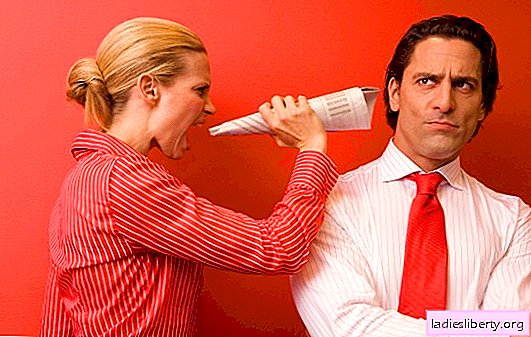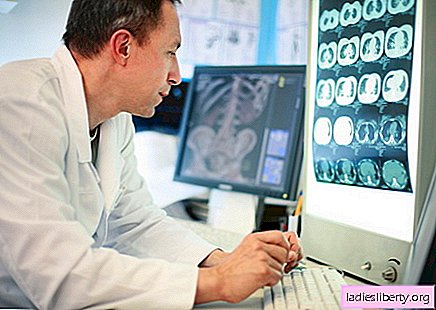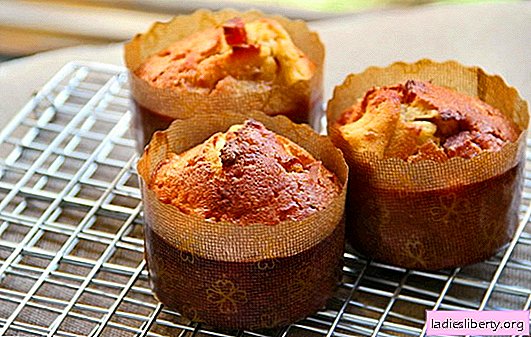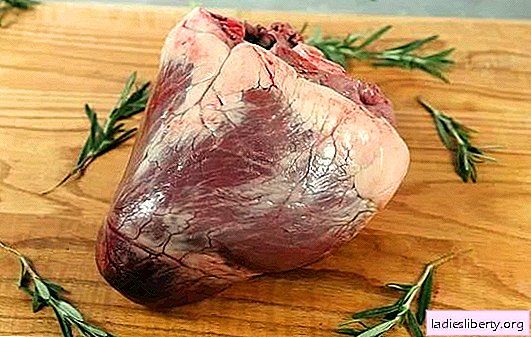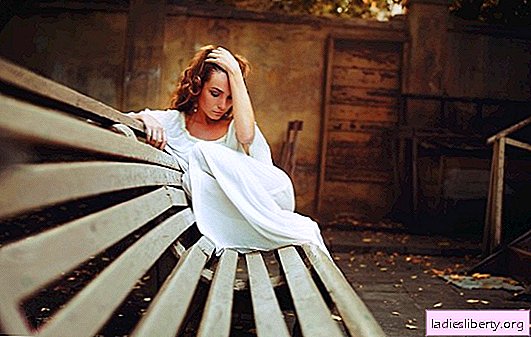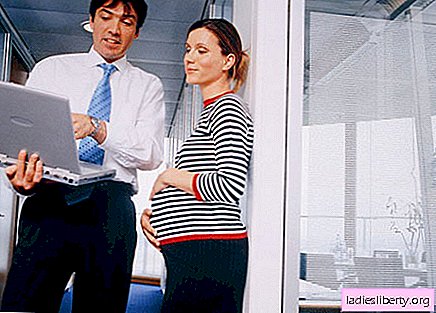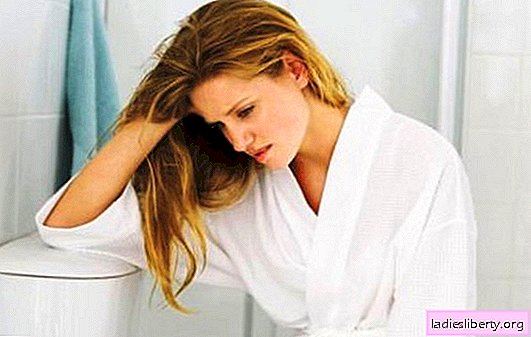
Unpleasant condition - pain during urination in women occurs at a time when there are favorable conditions for the development of pathogens in the urinary system.
This is facilitated by the weakening of the immune system due to hypothermia, stress, overwork, malnutrition.
In addition, pain when urinating in women causes a number of infectious and non-infectious diseases.
Pain during urination in women - causes of pathology
Cystitis. One of the common causes of discomfort during emptying the bladder is inflammation. Due to the peculiarities of the anatomical structure, women are often susceptible to inflammatory diseases of the urogenital area.
The fair sex has a short and wide urethra. It is through him that the infection is able to enter the bladder.
In addition to unpleasant painful sensations when emptying the urea, cystitis is characterized by frequent urging to the toilet, pain in the lower abdomen. As urine comes out of the bladder, the pain increases.
At home, cystitis can be treated with heat. We recommend bed rest with a heater in the lower abdomen, eating cranberry juice or tea. During treatment, you must abandon canned and spicy foods. It is better to eat more vegetables and fruits, dairy products.
With cystitis can not visit the bath. After each urination should be washed with warm water with special means for intimate hygiene.
The complex of therapeutic and prophylactic measures for cystitis often uses natural remedies based on herbal ingredients, such as extracts of bearberry leaves, horsetail and cranberries.
For example, UROPROFIT® dietary supplement, whose components have antimicrobial, anti-inflammatory and antispasmodic action. *
The complex of biologically active substances that are part of the dietary supplement "UROPROFIT®" helps to normalize urination, improves the functional state of the kidneys and urinary tract, and also reduces the risk of repeated exacerbations of chronic cystitis. *
Relieves pain in cystitis No-shpa, candles with papaverine. If pain and discomfort in the lower back were added to the pain during urination, as well as the body temperature increased, then you should consult a doctor.
Urethritis - an inflammatory process in which the mucous membrane of the urethra is affected. The disease is caused by: hypothermia, sexually transmitted infections, failure in the immune system, injuries of the urethra, cystitis, first sexual contact.
The characteristic signs of urethritis are pain during urination, which persists during the entire emptying of the bladder, burning, itching and redness of the external genital organs.
Treatment of the disease consists in the use of antibiotics, vitamin and immunostimulating drugs, medicinal tampons in the vagina, sessile warm baths with decoction of herbs or potassium permanganate.
During the period of treatment, it is important to limit physical exertion, to eliminate the use of alcohol, to minimize sex.
Vaginitis, vulvitis, vulvovaginitis - inflammation of the vagina, causing pain when urinating in women. The main causes of diseases:
• neglect simple rules of personal hygiene
• sexually transmitted infections
• injuries of genital oran
• endocrinological diseases
• hormonal disorders
• weakening the body's defenses
Vaginitis, vulvitis and vulvovaginitis are manifested by discharge with an unpleasant odor, itching and burning in the vagina, pain during intercourse, frequent urination.
Treatment of inflammatory processes of the vagina requires an integrated approach. Prescribe antibiotics, vaginal suppositories, disinfectant solutions. Concurrent diseases are treated in parallel.
Endometritis - A disease in which the inner lining of the uterus is inflamed. The cause of the disease is the spread of infection from the lower parts of the genitourinary system.
Signs of endometritis:
• lower abdominal pain
• pain when emptying the bladder
• general malaise
• discharge
• elevated body temperature
Antibiotics are used in the treatment of pathology.
Candidiasis - a disease that is caused by yeast-like fungi. They are in the body of every woman. In some circumstances that reduce the body's immunity, fungi multiply rapidly and cause the occurrence of the disease.
Symptoms of candidiasis manifest pain when urinating, cheesy discharge, burning and itching in the genitals, discomfort after sexual contact.
There are many modern drugs that successfully fight the disease. They are produced in the form of tablets, capsules, suppositories, gels. At the initial stage, candidiasis is well treated locally. With more pronounced symptoms, it is recommended to take both pills and suppositories.
Excellent prevention of candidiasis is:
• use of natural yogurt
• impossibility of hypothermia
• elimination of unjustified use of antibiotics
• no random links
• infrequent douching
Chlamydia - a disease caused by chlamydia - microorganisms that are neither viruses nor bacteria.
Chlamydia, as a rule, proceeds with minor manifestations or asymptomatic. The main route of infection is sexual contact.
Chlamydia is characterized by lower abdominal pain, fever, purulent discharge, pain and burning sensation when urinating.
As with any other bacterial infection, antibacterial agents are used in the treatment of the disease in order to kill the infection directly inside the cells.
In addition, various immunostimulating preparations, multivitamins, enzymes, and physiotherapy are used.
Gonorrhea - A common cause of pain when urinating in women. The disease adversely affects health. It can affect organs and systems.
In almost 100% of cases, gonorrhea is sexually transmitted. Symptoms of the disease: purulent discharge, burning in the genitals, painful emptying of the bladder.
Gonorrhea treatment is carried out with antibiotics that destroy the pathogen - gonococcus. During its passage it is necessary to completely give up alcohol and sexual intercourse.
Disease prevention involves using a condom during intercourse.
Trichomoniasis, causing pain when urinating in women, may begin sluggishly with vaginal discharge. Then there is redness of the genitals, increased discharge, acquiring an unpleasant pungent smell.
Symptoms of the disease largely depend on the location of Trichomonas. Itching, burning and discharge talk about vaginal damage, and pain when urinating about the inflammatory process in the bladder.
Trichomoniasis is a sexually transmitted infection. In fact, it is a minor venereal disease that requires treatment of both partners.
You can get rid of the disease by taking a loading dose of the drug inside and using candles locally.
Ureaplasmosis - A disease that is also referred to as a disease transmitted through sexual contact. Ureaplasmosis is an inflammatory process in the urogenital system caused by the bacteria ureaplasma. It can be passed from mother to child during childbirth.
Often the disease proceeds without visible manifestations. In the presence of certain factors such as reduced immunity, pregnancy, ureaplasmosis can be characterized by specific signs:
• pain when urinating
• pain after intercourse
• pain in the lower abdomen
• transparent vaginal odorless discharge
When the inflammatory process spreads, excretions become yellow with an unpleasant odor.
In the treatment of ureaplasmosis, antibiotics are used, which are prescribed to each woman individually. In addition, they use immunostimulants, as well as drugs that contribute to the normalization of the intestinal microflora and vagina.
Disease prevention is the rejection of unprotected sex. With the treatment started on time, it is possible to get rid of ureaplasmosis in 2 weeks.
Pain when urinating in women - causes of non-infectious nature
Renal colic not an independent disease. Most often it is a symptom of urolithiasis. Also, renal colic can occur with pyelonephritis, kidney tumors, kidney injury, some gynecological diseases.
As a rule, the attack begins spontaneously. It is characterized by acute cutting back pain, which is able to give to the stomach, groin or thighs. This urge to urinate. It becomes difficult, it becomes painful.
The most severe signs of renal colic are felt while walking or running. The pain quickly becomes unbearable. The attack is easily confused with signs of another disease.
Treatment for renal colic at home is as follows:
• bed rest
• warm water bottle on the lumbar region
• timely emptying of the bladder
With a second attack, hospitalization is required.
The movement of sand and stones. At the initial stage of urolithiasis sand is formed in the kidneys. Its movement along the urinary tract causes lower back pain, pain when urinating, urine changes, nausea, vomiting.
Drugs can help get rid of the problem, as well as a diet in which it is forbidden to eat salty and spicy foods and foods high in protein.
Pyelonephritis - A disease caused by urolithiasis and frequent bouts of colic. The disease is characterized by pains during urination in women, unpleasant sensations in the lower back, headache, nausea and vomiting.
The treatment is made with the help of antibiotics, immunostimulating drugs.
Gout - deposition of uric acid salts in the joints. Symptoms of the disease are growths on the arms and legs, joint pain, redness and heat, the development of urolithiasis, which causes pain when urinating in women.
Gout is treated with anti-inflammatory drugs, a diet when salt is almost completely removed from consumption.
Pregnancy. Pains during bladder emptying often occur during pregnancy, when the enlarged uterus compresses the bladder and does not allow it to naturally stretch.
In the body of the future mom hormonal changes take place. During this period, defenses are weakened, and the risk of bladder inflammation appears.
Pubic pediculosis. Infection occurs during sexual intercourse, and in some cases through personal items. When pubic pediculosis due to the strong scratching of the skin in the body easily get sexually transmitted infections. Most of them cause pain when urinating in women. Antiparasitic agents are used in the treatment of the disease.
Allergy chemical irritants is one of the causes of the inflammatory processes in the vagina. Modern manufacturers offer consumers a variety of antibacterial agents, which with frequent use can cause an allergic reaction.
A woman’s skin can respond to washing powder, toilet paper, tampons, scented pads, and vaginal contraceptive pills.
Poor personal hygiene. Many ladies often neglect the simple rules of personal hygiene.
Careful care of the genitals, which is able to protect against disease, consists in daily washing with warm water several times. Especially high quality care for intimate places should be during menstruation. At this time, you need to change the gaskets several times a day, after having performed the ablution.
Pain during urination in women - treatment
It is possible to get rid of unpleasant painful sensations during the emptying of the bladder only by determining the cause of the problem. If it consists in the presence of an infectious disease, it is necessary to undergo a course of antibacterial therapy. Additionally, you should follow a certain diet and personal hygiene.
If the pain during urination is caused by a fungal infection, then antimycotic drugs are taken.
When hormonal imbalance is prescribed hormone therapy. During menopause, it is recommended to use special creams that prevent vaginal dryness.
Venereal diseases are subject to serious treatment, which should be carried out strictly according to the scheme.
And if you experience pain when urinating in women due to allergies, an allergen is established and antihistamines are prescribed.
Pain when urinating in women - how to treat at home
In addition to traditional treatment, pain and burning during urination in women can be tried to win at home, using proven methods of traditional medicine. To do this, use:
1. decoction of grass bear ears
2. Infusion of lilac flowers or Althea root
3. decoction of cucumber seeds
4. decoction of cherry stalks
Preventing pain when urinating in women
• In order to prevent the development of the inflammatory process in the urogenital system, it is necessary to drink sufficient amounts of clean water a day. Approximate rate - 8 glasses.
• With every urge to urinate, no need to restrain. After emptying the bladder, thoroughly wash with warm water from front to back.
• Give preference to underwear made from natural fabrics. Synthetic and tightly fitting products adversely affect a woman's body.
• It is recommended that after each intercourse to empty the bladder and flush.
• After water procedures should be dried genitals. For these purposes, suitable cotton towel or disposable napkins.
• If the pain during urination has not passed after the treatment, instead of a bath, take water procedures in the shower.
• For washing the ureter useful tea without sugar, compote, water without gas.
• To facilitate the process of emptying the bladder, use a bath of water.
Do not tolerate pain when urinating, but take timely measures to eliminate it!
* Instructions for use of dietary supplements for food UROPROFIT®

